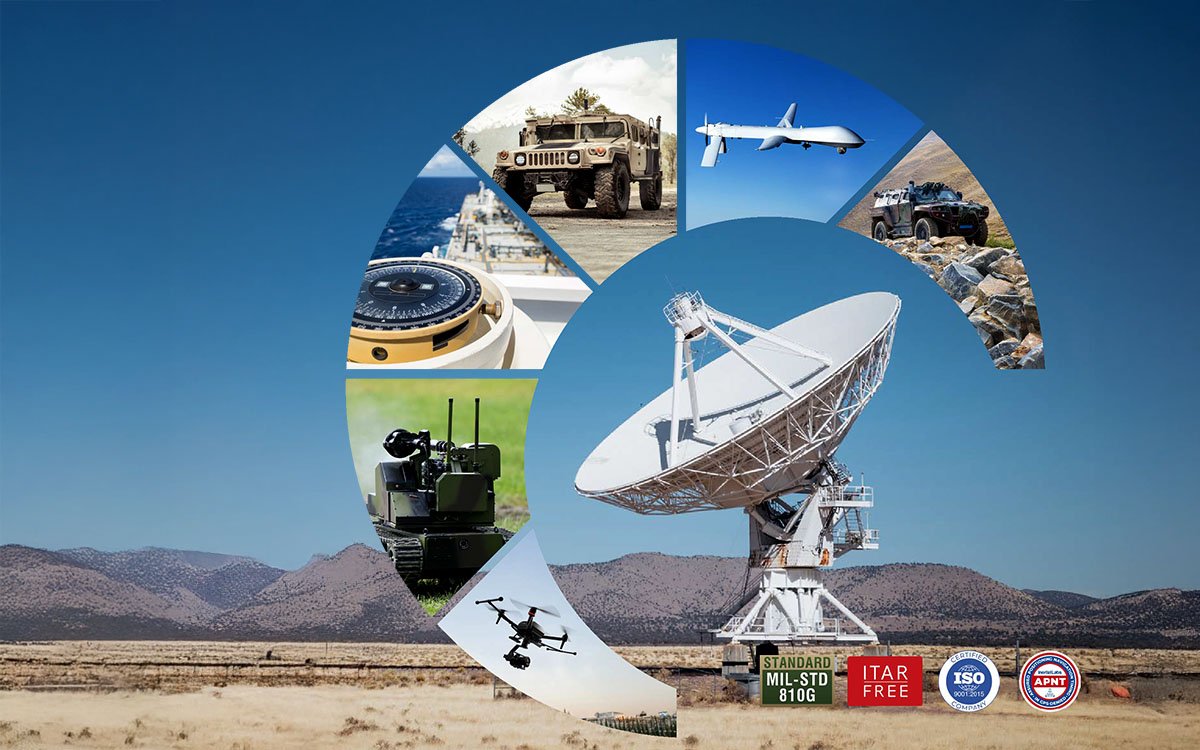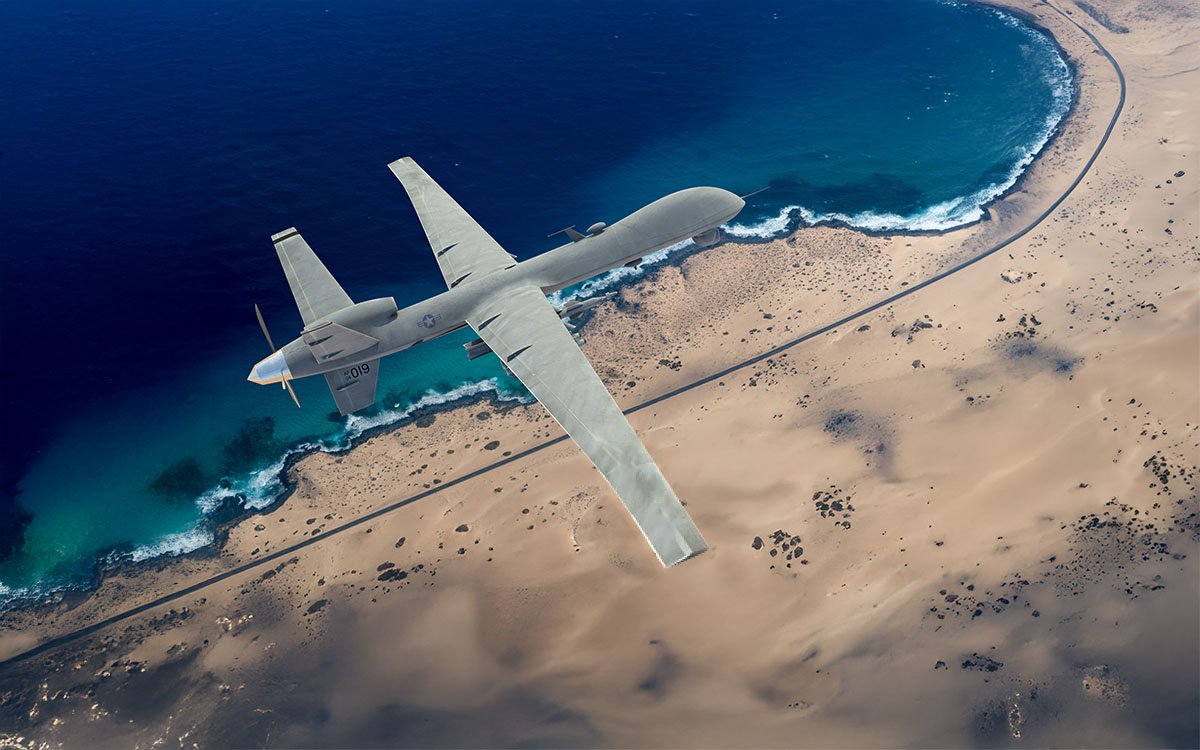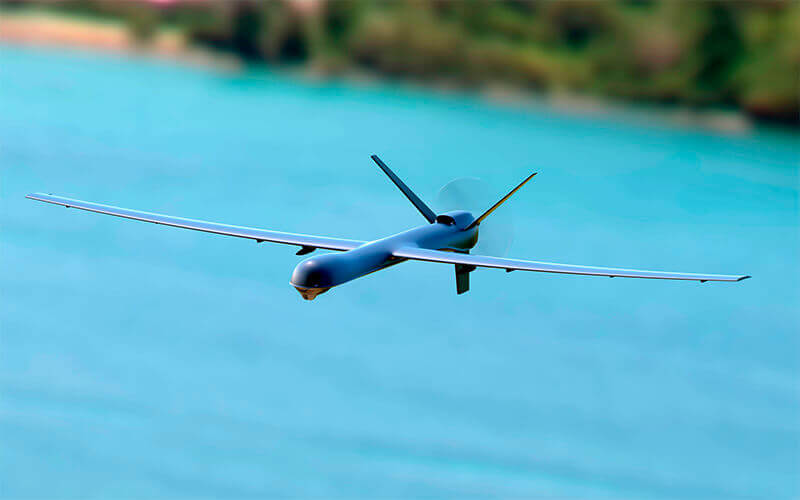Aerospace Solutions
IMU and INS Solutions for Drones

IMUs for Drones: The Core of Flight Stability
Our IMUs are based on MEMS (Micro Electro Mechanical Sensors) technology and use three-axis accelerometers and gyroscopes to measure linear acceleration and angular velocity (roll, pitch, yaw). This is essential for:
- Flight stabilisation in fixed-wing, VTOL and multicopter drones
- Orientation tracking for autopilots and gimbals
- Short-term dead reckoning when GNSS is briefly unavailable
IMUs Range
We offer a range of IMUs from industrial-grade to tactical-grade, including our popular Kernel-210 and Kernel-201 models, selected for UAVs requiring:
- Low SWaP (Size, Weight, and Power)
- High dynamic range
- Ruggedised for airborne deployment

INS for Drones: Sensor Fused Navigation for GPS-denied Navigation

GPS-Aided or Denied navigation for disaster response and mitigation for Unmanned Aerial Vehicles (UAV).
- Tactical or Industrial Grade IMU fused with single or dual antenna GNSS Receiver
- Veronte Autopilot
- Aiding Data Compatible (ADC, Fluxgate Magnetic Compass, Encoder, etc.)
Specialize for:
While an IMU measures motion, an INS (Inertial Navigation System) fuses the IMU with:
- GNSS receivers (Hexagon/NovAtel, u-blox, Septentrio)
- Magnetometers (for heading and orientation)
- Pitot tubes or differential pressure sensors (for airspeed and wind estimation)
With our proprietary Kalman filter algorithms, advanced sensor fusion is achieved that enables:
- Full attitude, heading, position, and velocity
- GNSS-denied navigation for UAV platforms
- Spoofing/jamming detection and correction
- Adaptive sensor calibration in real time
INS Range
Our INS products — such as the INS-U and INS-P — are used extensively in both military UAVs and civil UAVs operating in GPS-denied environments, including heavy electronic warfare (EW) conditions.

Remote Sensing with LiDAR

Mapping of environments using LiDAR scanner for construction site monitoring, land survey, utility inspection, etc.
- Complete Remote Sensing Payload Instrument (RESEPI)
- Dual Antenna INS
- Many compatible commercial LiDAR scanners (Velodyne, Livox, etc.)
- Processing software
- Actionable deliverables (DEM, DSM, DTM, Contours, etc.)
Related Materials:
Pixhawk Autopilot
Completely open-source autopilot solution that can be customized for UAV applications utilizing Pixhawk 2.1 integration with INS-P.
- Fully customizable
- Works with aiding sensor data
- GPS-Denied Navigation
- Outputs flight data for UAVs to ensure optimal positioning and flight performance for various aerial platforms
Related Material

Built for Autonomy, Designed for Integration

We support seamless integration with major flight controller systems:
- ArduPilot (official driver in the repo, advanced features in our fork)
- PX4
- Custom autopilot frameworks
Our systems output clean, fused data that can be treated as external GPS or full navigation input, allowing for flexible integration depending on the UAV’s architecture and mission.
Trusted by Defense Innovators
Inertial Labs technology is field-proven and has been deployed on a wide range of UAV platforms, including in operational, mission-critical scenarios. The platforms that Inertial Labs IMU-INS products are optimised for include:
- ISR Platforms
- Deep Strike Drones
- Autonomous Loitering Munitions
- Civil Inspection and Mapping UAVs
Whether you’re upgrading a quadcopter or developing next-generation fixed-wing systems, we help UAV developers meet the challenges of denied environments, complex airspace, and precision targeting.

Why Choose Inertial Labs for UAV Navigation?
- US-based manufacturer with global footprint
- Advanced, customisable Kalman filters for sensor fusion
- Tactical-grade performance in compact packages
- Expert support for defense and UAV integrators
Looking for an INS that works when GNSS doesn’t?
Send request to our Sales Team
Trademark Legal Notice: All product names, logos, and brands are the property of their respective owners. All company, product, and service names used in this document are for identification purposes only. Use of these names, logos, and brands does not imply endorsement. ABS, BeiDou, Cobham Limited, EdgeTech, Galileo, GLONASS, GPS, Hexagon, HYPACK, IMAGENEX, Kongsberg Seatex, LabVIEW, Livox, Norbit, NovAtel, NovAtel Inertial Explorer, Ouster, Qinsy, Quanergy, QZSS, R2Sonic, RIEGL, ROS, Septentrio, Ship Motion Control SMC, Teledyne TSS, u-blox, Velodyne, WAASP, Waypoint.